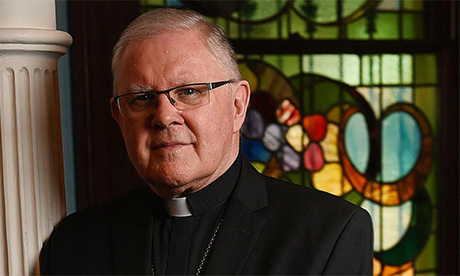The head of the Australian bishops’ conference, Archbishop Mark Coleridge, is in Rome for high-level discussions before the Church in Australia’s first plenary council since Vatican II.
The plenary council is set to begin in Adelaide October.
During his two-week trip to Rome, Coleridge will meet with senior curial figures and Pope Francis. They will focus on the plenary council, its key themes and its organizing principles.
The council is part of the Church in Australia’s response to the sexual abuse crisis and issues including efforts by local governments to pass laws encroaching on religious freedom and the seal of confession.
Lay participants may contribute to Council sessions, but only bishops will vote on binding resolutions.
These resolutions will be sent to the Vatican for approval.
While he is in Rome, Coleridge also plans to discuss three sepcific topics.
These are: Vatican’s response to the Australian Royal Commission’s recommendations on the protection of minors, the seal of confession, and the case of imprisoned Cardinal George Pell.
A law passed in the state of Victoria last year requires clergy to report suspected child abuse to the authorities, even if it was revealed in the confessional. To obey this law means requiring priests to break the sacramental seal of confession.
The state’s premier, Daniel Andrews, said he hoped the legislation would “send a message” to the Church on child sex abuse.
A national standard for mandatory reporting by clergy is also being considered.
Pell, the former Vatican prefect of the Secretariat for the Economy, was convicted on five charges of child sexual abuse and sentenced to six years in prison. He must serve three years and eight months before being eligible for parole. He is in a maximum-security prison and has appealed his conviction to Australia’s High Court. The case will be heard on March 11 and 12.
Australian bishop Richard Umbers is emphasising the importance of a valid ecclesiology, Catholic language, and clear expression of Church teaching during the upcoming plenary council.
There must be a proper understanding of the hierarchical structure of the Church, and respect for Church teaching, during the council assembly, he says.
The plenary council has been preceded by a “listening and dialogue phase” where the lay faithful submitted suggested topics on what is asked of the Church in Australia, and the future of the Church.
According to the final report on the listening phase, “strongly discussed topics included the rule of celibacy for priests, the ordination of women and the inclusion of divorced and remarried Catholics.”
The desire for “greater listening” and lay involvement in the Church, as well as better evangelization was also present in the submitted answers, the report said.
Source
- Catholic News Agency
- Image: ABC
News category: World.




